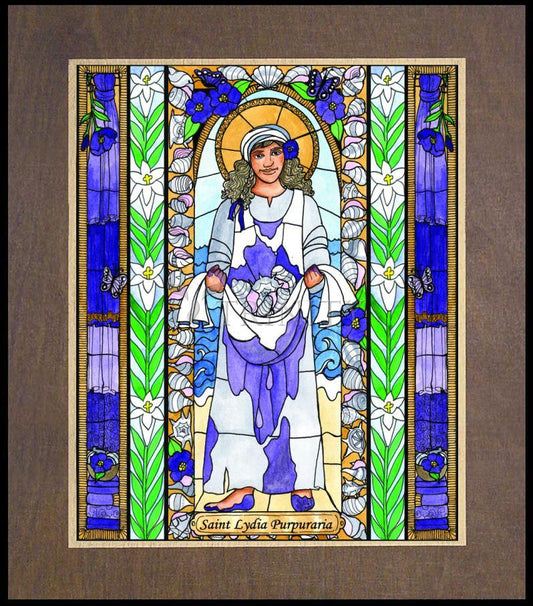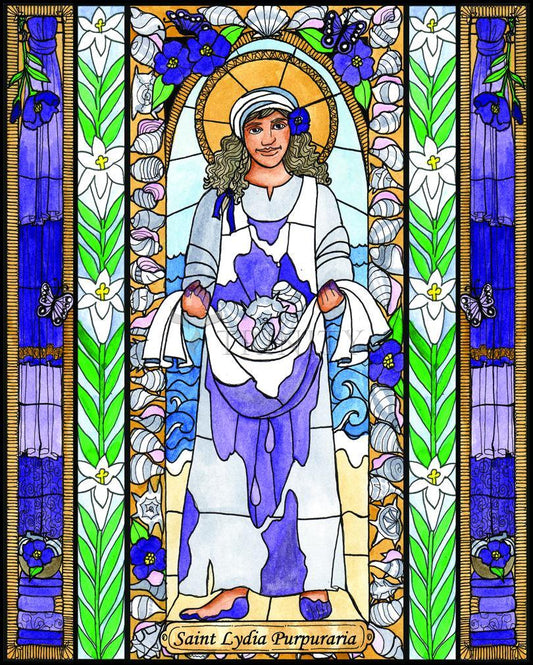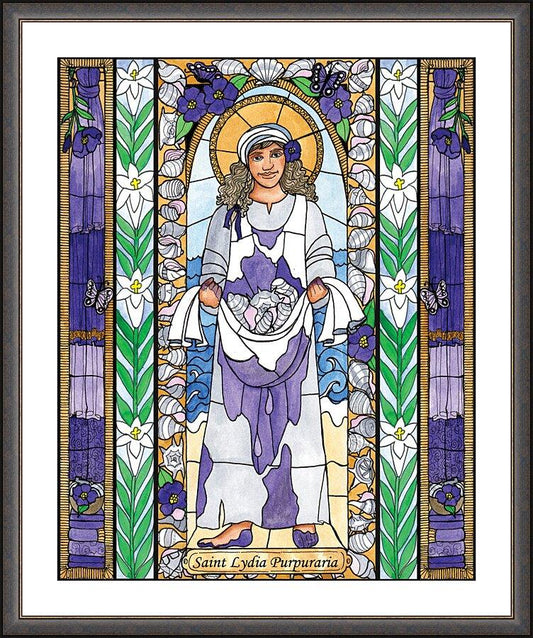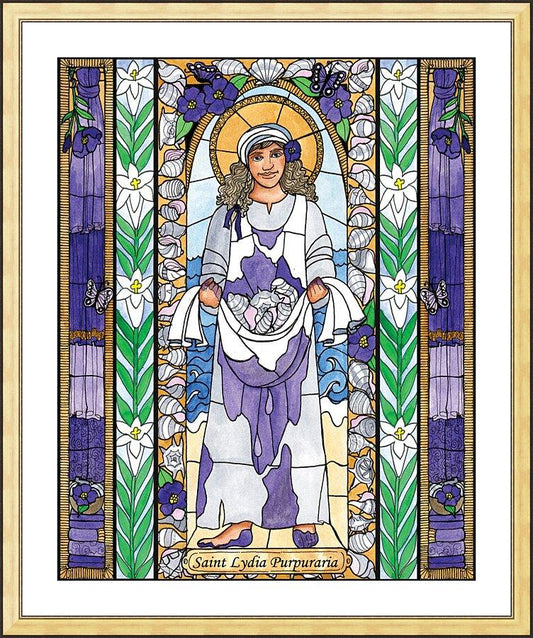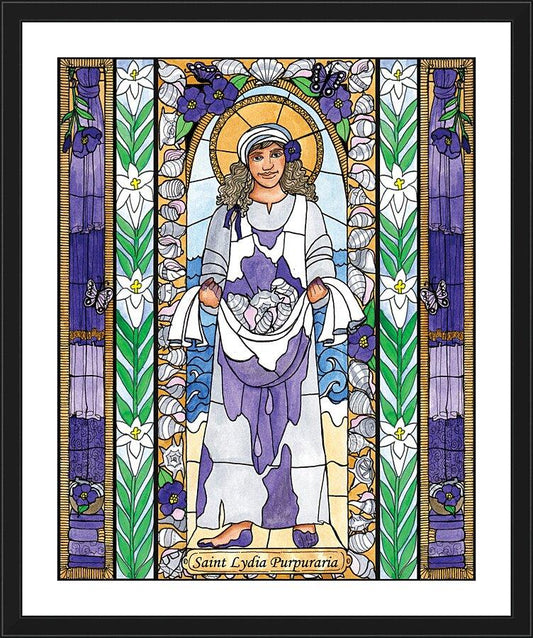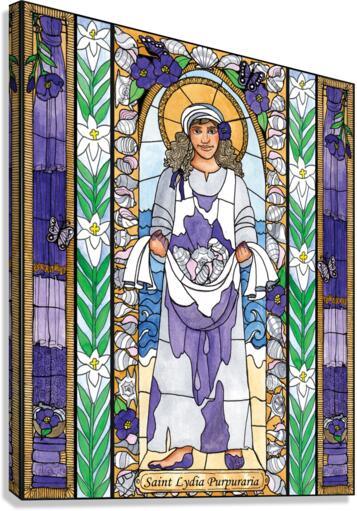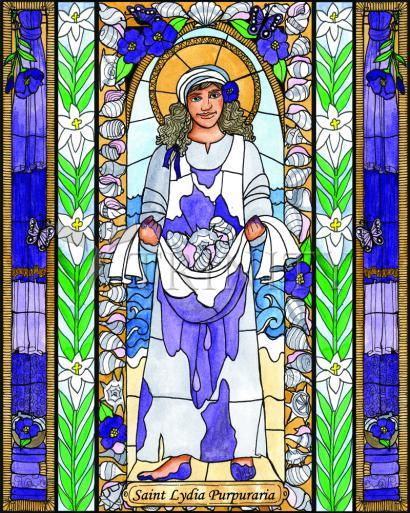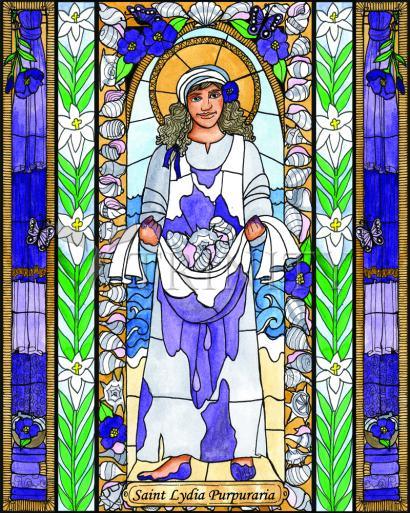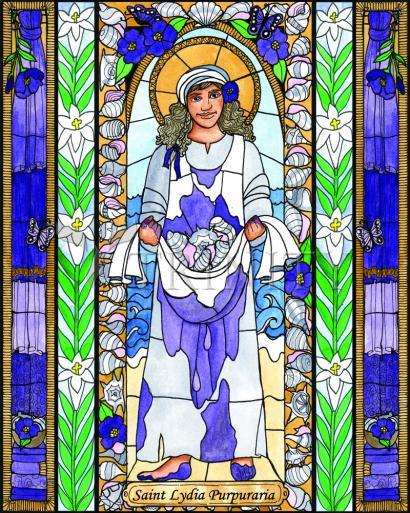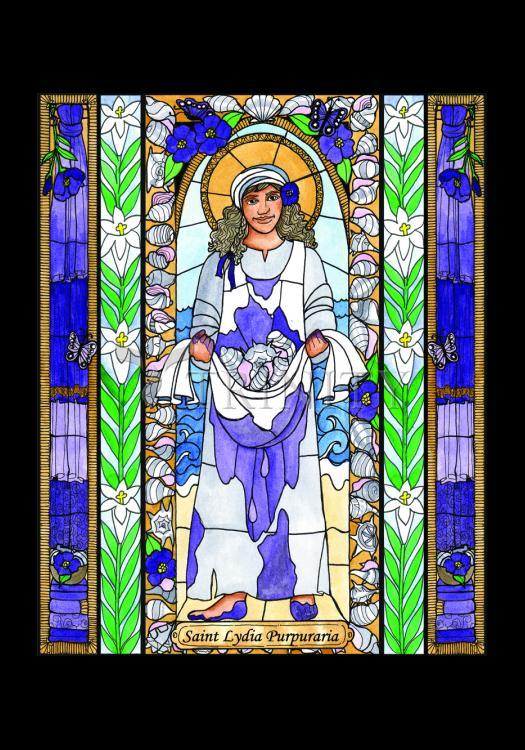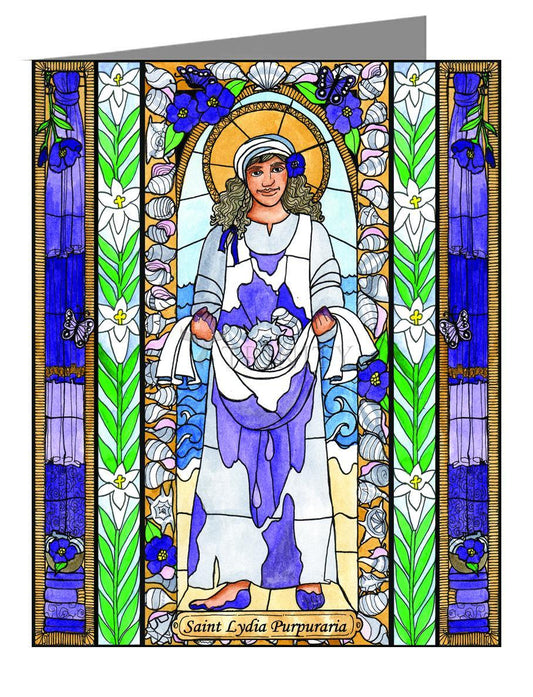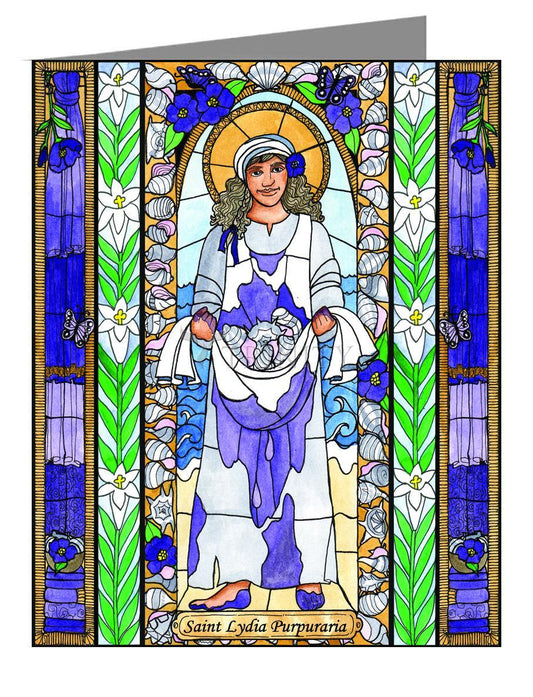ARTIST: Brenda Nippert
ARTWORK NARRATIVE:
Lydia was from Thyatira, a town in Asia Minor. We don't know much about her and the second part of her name “Purpuraria” was not really her name, but we call her this because it means “merchant of purple”. In the Bible (Acts 16:12-30), we are told she was Saint Paul's first convert in Philippi. She was so excited about Paul's message that she and her entire household were baptized and then she invited Paul and his companions to stay at her house. As a “merchant of purple”, her business would have been to gather certain kinds of mollusks (a type of shellfish), which secreted a substance used to make purple dye, the dye was then used to dye cloth purple.
It took thousands of mollusks to make only an ounce of dye. Because of this, purple cloth was rare and expensive, it was worn only by royalty and rich and important people. Dealing in luxury goods, Lydia would have owned a nice big house and had the means to support the Christian cause. Lydia Purpuraria made a good living and she was generous with her earnings and now two thousand years later, we are still grateful for her kindness and the color purple, which helped start the spread of Christianity.
Her feast day is August 3.
Read More
Lydia is the first recorded person in Europe to become a follower of Jesus Christ. She was Saint Paul's first baptized convert at Philippi.
What we know of Lydia is found in the Acts of the Apostles. She was from Thyatira, an industrial center located in what is now western Turkey. She was a wealthy business-woman; a manufacturer and seller of purple dyes and fabrics for which the city of Thyatira was noted. Lydia was part of a high value industry. Purple goods were luxury items, used by emperors, high government officials, and priests of the pagan religions.
At the time of the narrative in Acts, Lydia and her household had moved to the city of Philippi, a Roman colony on the Rome-to-Asia trade route. This is where she had her first encounter with Paul on his second missionary journey about the year 50.
While visiting Philippi for the first time, Paul and his party came upon Lydia and a group of women gathered by the river that ran through the city center. He sat down and shared the gospel with them. Lydia listened intently, took the gospel message to heart, and she and her family were then baptized in the river.
Lydia insisted on providing hospitality to Paul and his companions, so they made their home with her while in Philippi. She continued to help them even after they were jailed and released.
As a successful businesswoman, her home would have been spacious enough to welcome guests and to become a place for community gatherings and liturgies.
Paul cherished the members of the Christian community at Philippi and called them his "joy and crown." Undoubtedly, Lydia's generous hospitality and leadership in the founding of this early Christian community contributed to Paul's affection.



